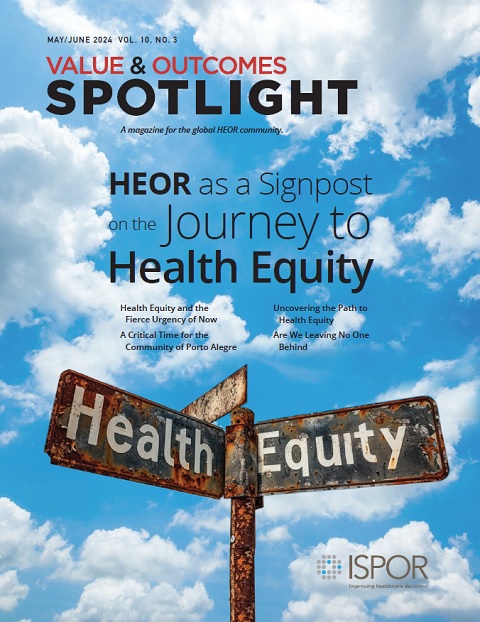Uncovering the Path to Health Equity: A Glimpse Into Uganda’s Healthcare Financing
Yvonne Kamara, MA, MBA, ISPOR Uganda Chapter, Makerere University, Kampala, Uganda
In the verdant landscapes of East Africa, Uganda grapples with a profound challenge that echoes across the continent: the quest for equitable access to healthcare. As Uganda strides towards the ambitious goal of universal health coverage (UHC), the pursuit of health equity and protection from catastrophic health expenditures stand as paramount policy targets.
UHC, at its core, promises access to healthcare for all, shielding individuals from financial ruin due to medical expenses. In Uganda, where the healthcare system is primarily financed by a blend of donor support, tax revenue, out-of-pocket payments, and insurance, the journey towards UHC is both complex and urgent.
"As Uganda strides towards the ambitious goal of universal health coverage, the pursuit of health equity and protection from catastrophic health expenditures stand as paramount policy targets."
Despite progressive tax policies aimed at funding healthcare, out-of-pocket payments remain the predominant mechanism for financing health expenditure in Uganda. This reliance on individual payments places a disproportionate burden on the poor and vulnerable, exacerbating disparities in healthcare access and outcomes.
To truly understand health equity, we must delve into the intricacies of who bears the financial burden of healthcare and who reaps the benefits of these services. This is precisely the focus of a proposed study on health financing equity in Uganda, leveraging data from the Uganda National Household Survey 2019/2020 to provide a comprehensive analysis.
At the heart of this study lies the utilization of Kakwani indices1—a powerful tool for assessing equity in health financing. By scrutinizing Uganda’s main domestic health financing sources, researchers aim to unravel the nuances of equity, or the lack thereof, in the distribution of financial burdens across different segments of society.
"To truly understand health equity, we must delve into the intricacies of who bears the financial burden of healthcare and who reaps the benefits of these services."
But the study doesn’t end there. Armed with the methodology of benefit incidence analysis, researchers endeavor to shine a light on the distribution of healthcare benefits across socioeconomic groups.2,3 By peering through the lens of data, they seek to uncover the extent to which healthcare services reach those in need, irrespective of economic standing.
The implications of this study are profound. It underscores the urgent need for policy makers to prioritize addressing the health needs of the poor and vulnerable. Ensuring that essential services reach these populations is not just a matter of moral imperative but also a strategic imperative for sustainable development.
Moreover, efforts must be made to prevent an undue burden of healthcare financing from falling disproportionately on the poor. By safeguarding equity in health financing, Uganda can take significant strides towards achieving UHC and ensuring that no one faces financial ruin due to seeking medical care.
"Ensuring that essential services reach these populations is not just a matter of moral imperative but also a strategic imperative for sustainable development."
Central to Uganda’s commitment to universal coverage is the guarantee of access to quality healthcare for all, regardless of socioeconomic status. Financial risk protection must remain a priority, ensuring that no individual or family faces catastrophic expenses because of seeking essential medical care.
As Uganda charts its course towards a future of health equity and universal coverage, the findings of this study will serve as a guiding light—a roadmap for policy makers, practitioners, and advocates alike. For in the pursuit of health equity lies the promise of a healthier, more prosperous future for all Ugandans.
References
- Kakwani NC. Measurement of tax progressivity: an international comparison. Econ J. 1977;87:71-80.
- World Health Organization. Health financing progress matrix assessment: Uganda 2023. Published October 2, 2023. Accessed April 1, 2024. https://www.who.int/publications/i/item/9789240078611
- Kwesiga B, Ataguba JE, Abewe C, et al. Who pays for and who benefits from health care services in Uganda? BMC Health Serv Res. 2015;(15):44. https://doi.org/10.1186/s12913-015-0683-9

